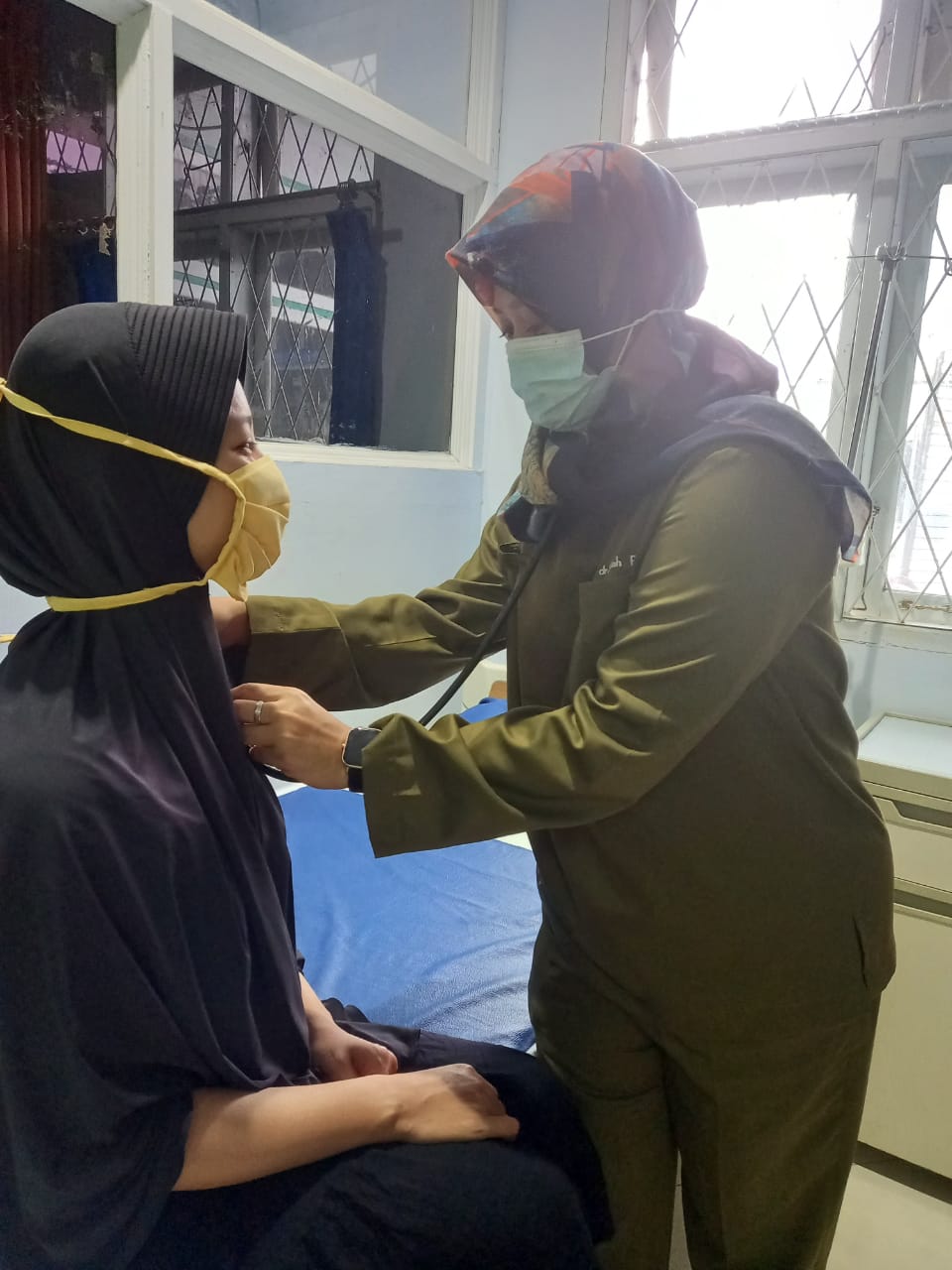“I never thought there was a role for me to play in providing support to gender-based violence (GBV) survivors,” said dr Athitah Pratiwi, who works as the only doctor at the public health center (puskesmas) in Tompe, Donggala district, Central Sulawesi region, as she reflects her experience working with GBV survivors in the past.
“I met a GBV survivor for the first time when I was working as a medical intern at a public health center at Toli-Toli Regency in Central Sulawesi. The survivor was a teenager. At that time, I noticed that the survivor was referred to an OB/GYN specialist, who has the expertise in providing special care for GBV survivors.”
Originally from Padang, West Sumatera, dr. Pratiwi spent her whole life in the Central Sulawesi Area. She commenced her medical practice in 2016 as a medical intern, followed by her assignments in Madani Hospital and Untad Hospital. After becoming a civil servant in 2019, she was appointed as a doctor at Puskesmas Tompe where she witnessed and treated her first GBV survivors in the clinic.
“There was a case when a 12 year-old girl was taken to the clinic, accompanied by her aunt. She has been raped by her close relative. I suggested that she go to a bigger hospital to get checked by an OB/GYN specialist. I also told the aunts to report the case to the police, but she refused as the perpetrator was a close relative. That was it,” she reminisced.
dr Pratiwi thought there was nothing else she could do to GBV survivors. Then, her perspective was to change dramatically after joining a Clinical Management of Rape Survivors (CMR) training session in October 2020. “During the training, I learned the many ways I can contribute to the handling of GBV cases. For example, I can conduct a physical examination and collect forensic evidence.” Especially she stresses the importance of serving GBV survivors within the first 72 hours after the incident, for example, she could treat the survivors in using emergency contraception or ARV to avoid unwanted pregnancy and HIV infection or conduct forensic examination to collect the proof. She could also provide basic social and psychosocial support and referral to community GBV focal points and safe places.

The intensive four-day training was provided online by Yayasan Kerti Praja (YKP) foundation, a non-governmental organization (NGO) that focuses on comprehensive healthcare and research on HIV and sexual and reproductive health, in close collaboration with the United Nations Population Fund (UNFPA) Indonesia and Australia's Department of Foreign Affairs and Trade (DFAT). The training was tailored for healthcare providers, including midwives and doctors, to increase their knowledge and understanding of GBV and CMR. During the training, they learned practical ways for identifying and handling GBV cases.
After dr. Pratiwi completed the training, she immediately started sharing the knowledge with her colleagues at the puskesmas. “I noticed that we do not have adequate space to handle GBV cases to provide private space for GBV survivors. I plan to advocate for this issue to my supervisors so that we can prepare a special space in ICU. I also hope to get more advanced medical training on CMR in person so that I can serve GBV survivors better at my clinic.”
dr. Pratiwi has a family with a husband and one child and she recalls there were times when she had to spend time away from them after the 2018 Sulawesi earthquake and during COVID-19 pandemic. “Working as a doctor is sometimes challenging as I cannot see my family often. My kid is mostly staying with my parents in Palu, as they are concerned about the increased risk of COVID-19 infection in my workplace. But I am motivated to continue working as a doctor because I find it most rewarding every time a patient appreciates my work with smiles and thank-yous and they leave my clinic with less pain and concerns.” dr. Pratiwi continues her practice with strong ambition to make women, men, girls, and boys living healthier lives and free from violence.
Megumi Uchino
Humanitarian Programme Analyst
Loly Fitri
Gender-Based Violence Field Officer
UNFPA Indonesia


